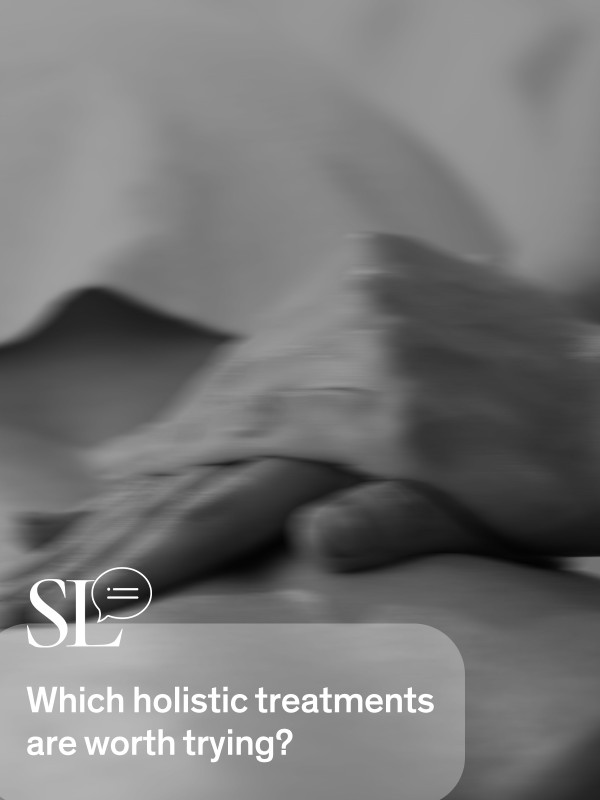22 Health Niggles You Shouldn’t Ignore
Unintentional Weight Loss Or Gain
This may sound like a welcome surprise but dropping pounds when you’re not actively trying to, should not be ignored. It can be one of the first signs of cancer and other serious conditions. Conversely, swelling, bloating, and other unexplained weight gain, are also a sign to be concerned, again possibly about cancer. A pelvic exam and blood tests are among procedures that can help determine the cause of either weight loss or gain.
Tiredness
When’s the last time you woke up feeling refreshed and ready for the day ahead? Exactly. In a fast-paced social media-obsessed world, we never really ‘switch off’. However, if you constantly feel groggy and sapped of energy, then alarm bells should ring. This is usually a sign of anaemia, the medical term for being iron deficient. But heart or lung problems can also cause fatigue because your organs and muscles aren’t getting enough oxygen. So, it’s best to lean on the side of caution and see your GP.
Extreme Fatigue
This is different from above. We’re talking chronic fatigue, the type of tiredness that means getting dressed in the morning makes you feel like you’ve run a marathon. One of the more common causes of fatigue includes hypothyroidism – when your thyroid becomes underactive. Luckily, correcting your thyroid levels can be as simple as a prescription. However, other conditions can cause fatigue include depression and kidney and liver failure.
Dizzy Spells
We usually associate feeling dizzy with dieting or exercising without enough fuel in our body. Often, this may be an early sign of a middle ear infection (labyrinthitis) that can knock you off balance, or a reaction to medication, or anaemia. However, if dizziness comes with breathlessness and palpations this is usually associated with heart disease and needs looking at immediately.
Intense Headaches
Any unexplained, intense headaches must never be ignored. They can be a sign of stroke, a central nervous system infection, brain cancer or bleeding on the brain. If migraines aren’t in your family medical history, seek immediate help.
Prolonged Coughing
Coughs caused by colds generally clear themselves up within four weeks. However, if your cough lasts longer than this, it’s best to seek attention, especially if you smoke or are short of breath. A cough is one of the most common symptoms of lung cancer. And if your cough produces blood—that’s your prompt to visit the doctor.
Increasing Shortness Of Breath
Heart attacks cause 1 in 3 of all women’s deaths each year because women are less likely to act on the signs. Extreme shortness of breath, especially after light activity, is one of these warning signs. One of the more common heart conditions in women, before developing into a full-blown heart attack, is coronary ischemia. This produces lack of blood flow into the heart and is caused by a partial or complete blockage in your arteries. If left unchecked, this can, and most likely will, cause a heart attack.
Bloated Stomach
Anxiety, stress, lack of sleep and a poor diet are all triggers for bloated tums. Often, we give ourselves a self-diagnosis of Irritable Bowel Syndrome. But if none of these causes apply and you still suffer with cramps and swelling, this could be a sign of a serious condition, such as ovarian cancer. Unfortunately, ovarian cancer is often diagnosed late, as symptoms are hard to spot and easily attributed to something else – for example, your stomach expanding may be put down to menstruation.
Constipation
Lots of people baulk at going to their doctor with constipation, but don’t let embarrassment put you off. Poor diet and hectic lifestyle are often causes of constipation yet colon cancer also can be to blame. If you’re bowel habits have changed, don’t be too quick to attribute this only to the food you eat. If you are worried, get yourself checked out.
Bloody Stools or Urine
While it’s true that stool colour and texture can change daily, depending on what you eat, black or bloody stools are not a good sign. Black or dark maroon-coloured stools often suggest bleeding somewhere in the gastrointestinal (GI) tract. Fresh blood can be anything from haemorrhoids, to ulcers, or even cancer. If you see blood in your urine, it’s usually the first sign of bladder or kidney cancer—so do not ignore.
Abnormal Vaginal Bleeding
Any form of abnormal bleeding, including bleeding after menopause, even just spotting, has serious implications and needs investigating immediately. This may be a sign of infection or a tear in your vaginal wall. If the irregular bleeding is accompanied by painful sex, it could be a sign of cervical or uterine cancer. See a doctor to have things checked out.
Painful Sex
Dyspareunia, or painful intercourse isn’t fun—nor is it something you should ignore. It can cause a strain on your relationship, as well as be a warning sign for something more serious. While most of the time painful sex could have a benign cause such as lack of lubrication, sometimes it can be more serious, such as cancer.
Nipple Discharge Or Other Breast Changes
If you’re not pregnant or lactating, any colour discharge should set off alarm bells. As should any changes in the shape of your breasts, or the development of lumps and bumps. These could all be tell-tale signs of breast cancer.
Unusual Hair Growth
Hair popping up in places it doesn’t normally such as the face or chest, can be caused by elevated levels of androgens (male hormones) which is a symptom of polycystic ovarian syndrome (PCOS). Consult your doctor.
Mole Changes
We keep banging on about this, but any changes in a mole’s shape, size, or colour—as well as the appearance of new moles—can be a sign of skin cancer. Watch for hairs growing inside the mole as well and contact your doctor about any suspicious moles or skin changes.
Discomfort in the jaw
Most probably this is just tonsillitis or a dental infection. Indigestion can also cause acid reflux up into the throat which will lead to pain around the jaw. However, you shouldn’t rule out angina or heart disease – as lack of oxygen to the heart can cause chest or jaw pain, so this pain must not be ignored.
Mouth Changes
Particularly important for women who smoke—you should be watching for yellow, grey, white or bright-red patches inside your mouth or on your lips. If you develop an oral sore which has a crater, you’ll need to be tested for oral cancer by your doctor or dentist.
A Sore That Won’t Heal
It’s easy to brush off an unhealed sore as a chronic spot that just won’t budge. Instead of piling on the concealer, speak to your GP. Skin cancers often start like this. If the spot is on your foot, you mustn’t delay seeking advice, there’s a risk that if the spots or ulcers spread this could lead to an amputation.
Persistent Leg Pain (On One Side)
70% of blood clots find their way into the lungs begin in the legs. It’s important to notice the signs of swelling and pain in one leg or the other and have the symptoms looked at right away, especially if you’re a frequent traveller.
Changes to Your Nails
Did you know your nails are a tell-tale sign of your inner health? They can show us if you are anaemic or have other serious disorders. For example, lung problems cause ‘club-shaped’ nails while skin diseases cause pitting. Tiny blood clots under the nails can suggest blood infections while prolonged black or brown marks could be skin cancer. Any nail changes provide clues to potentially bigger problems, so don’t ignore.
Tingling Fingertips
Pressure on your nerves coming from the spine at the neck or down the arm, can result in a tingling sensation and sometimes numbness too. Rheumatoid arthritis is one possible cause, as is diabetes, vitamin B12 deficiency and thyroid problems. Carpal tunnel syndrome, which usually causes tingling in the middle fingers, is another common cause.
Eye Vision Changes
Although this can often be a sign of ageing, if you suddenly feel you are straining your eyes, getting double vision or struggling to focus – especially with just one eye – this could be a sign of a stroke. Be vigilant for other symptoms too, such as mumbling your words, trouble with balance and numbness down one side of your body.
DISCLAIMER: We endeavour to always credit the correct original source of every image we use. If you think a credit may be incorrect, please contact us at info@sheerluxe.com.






